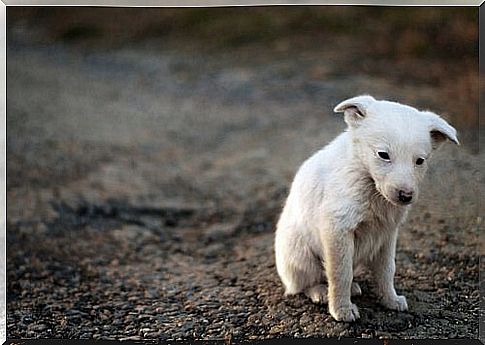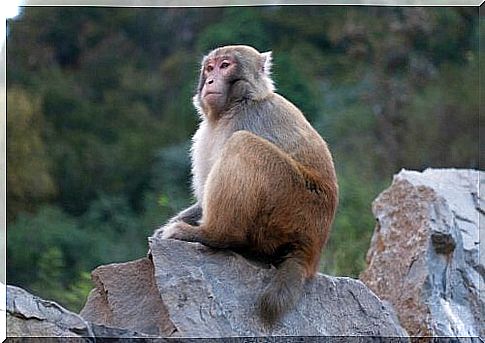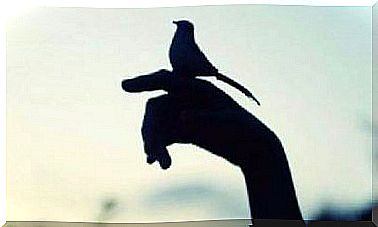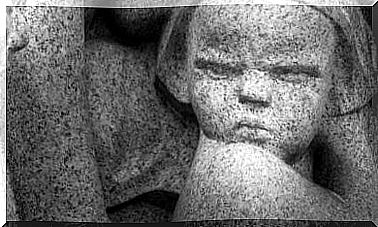Animal Consciousness: Are They Aware Of Their Suffering?

Are the animals aware of their suffering? Believe it or not, many of us have wondered about this more than once. It can be said with certainty that everyone who has had a pet or loved an animal is 100% sure of the answer to this question. But what does neuroscience say about animal consciousness?
Does research actually support that animals are aware of what affects them? Neuroscience now has more conclusive evidence that all mammals, birds and other species are aware of their own suffering. Animal consciousness is not a topic that has recently come up on the wallpaper. As early as 2013, a position was taken on the issue with the Cambridge Declaration on Consciousness.
Researchers have identified homologous circuits in humans and animals whose activity is consistent with conscious experience. It seems that the nerve circuits that are activated when an animal feels a feeling are the same as those that are activated in humans. Reputable neurologists from around the world support this study and agree that animals are actually aware of their own suffering.
Cambridge Declaration on Consciousness
On July 7, 2012, a group of reputable researchers signed the Cambridge Declaration on Consciousness. This document states that not only humans, but a large number of animals, including vertebrates and invertebrates, are conscious beings. This means that they are aware of their experiences, and can also have positive and negative mental states.
There is scientific consensus regarding the evidence that demonstrates that animals possess neuroanatomical, neurochemical and neurophysiological substrates of conscious states, as well as an ability to exhibit intentional behaviors. In other words, humans are not the only ones who possess neural substrates that generate consciousness.

Philip Low – Founder and CEO of the neurodiagnostic company NeuroVigil in California – Christof Koch of the Seattle Allen Institute for Brain Science, David Edelman of the La Jolla Neurosciences Institute and other prestigious neuroscientists signed the Cambridge Declaration on Consciousness.
It has been confirmed that the ability to have positive and negative experiences is what makes a being conscious.
Recent studies on the subject
Many studies continue to confirm these facts. In 2016, Jarrod Bailey and Shiranee Pereira presented a study on brain circuits linked to emotions and empathy in dogs. The study confirmed and extended the conclusions of the Cambridge Declaration on Consciousness.
INRA as well as the European Food Safety Authority also carried out a study on animal consciousness. They unveiled the results to the public in 2017 in Parma, Italy. This research confirms that animals are equipped with nervous systems that process complex information, including negative emotions caused by nociceptive stimuli.
This study analyzed different species, including primates, crows, rodents and ruminants. The researchers concluded that animals with autobiographical memory may have desires and goals that extend to the past and future. As a consequence, they are significantly affected by adversity.

The consciousness of the animals is real
Those who treat animals badly defend their actions by saying that animals do not feel anything. But after seven years of more or less solid evidence of animal consciousness and the many studies that support this, this is no longer an excuse.
All the people who treat animals as objects, treat them badly and abuse them must find other arguments to defend themselves, because science is not on their side.
Furthermore, legislation on animal rights, animal welfare and the like has had a major impact. Basically, all studies and evidence have become laws.
No matter how complex the human consciousness is, it seems that it will be studied alongside the consciousness of the animals in the future.









